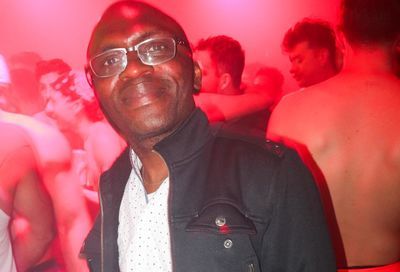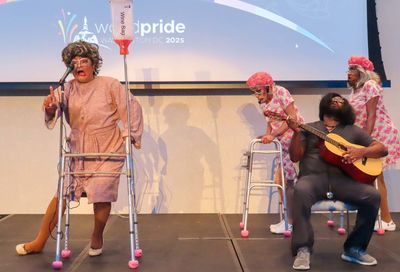California Supreme Court to Answer Standing Certified Question in Prop 8 Case
The winding challenge to California’s Proposition 8, which prohibits same-sex couples from marrying, will take another step on Thursday, Nov. 17. The California Supreme Court announced today that it will release its opinion — an answer to a certified question sent to it from the U.S. Court of Appeals for the Ninth Circuit — about whether it sees state law as granting initiative proponents the ability to appeal challenges to enacted initiatives when state officials do not do so at 10 a.m. Pacific Time Nov. 17.
 Specifically, the court will be answering whether the proponents have “particularized interests” in seeing the initiative upheld and whether California law itself allows the proponents to stand in the place of elected officials charged with defending the state constitution when those officials decline to do so.
Specifically, the court will be answering whether the proponents have “particularized interests” in seeing the initiative upheld and whether California law itself allows the proponents to stand in the place of elected officials charged with defending the state constitution when those officials decline to do so.
The Ninth Circuit appeals court, which is hearing the appeal of the trial court decision striking down Proposition 8 as unconstitutional, sought to have the California Supreme Court assist it with the case by answering these questions about state law through the process of asking a certified question.
On Sept. 6, the California Supreme Court heard arguments about the questions, with several justices appearing critical of the argument that the Proposition 8 proponents should be denied standing to appeal.
Once the Ninth Circuit receives the answer, it will take the appeal, Perry v. Brown, back under advisement and decide how it wishes to proceed on the federal standing question.
If the California Supreme Court finds the proponents to have a “particularized interest” or “the authority to assert the State’s interest,” the Ninth Circuit could then find the proponents to have standing. At that point, the appeal of the Perry trial court decision — the “merits” decision from the trial court that Proposition 8 is unconstitutional — could go forward.
But, as the American Foundation for Equal Rights attorney David Boies said for the plaintiffs challenging Proposition 8 at the December 2010 arguments before the Ninth Circuit, the standing question will not be answered definitively by the California Supreme Court. As such, the appeals court could call for additional briefing and/or oral arguments following the California Supreme Court decision on the certified question, which could put off a decision on the merits of the case — even if the proponents are found to have standing — further.
FOR MORE INFO: “Proposition 8 in Court: California Supreme Court Certified Question Argument FAQ.“
[Photo: Ted Olson, center, and David Boies, right, answer questions by audience members selected by David Boaz, the Cato Institute’s executive vice president, on May 18, 2011. (Photo by Chris Geidner.)]
Support Metro Weekly’s Journalism
These are challenging times for news organizations. And yet it’s crucial we stay active and provide vital resources and information to both our local readers and the world. So won’t you please take a moment and consider supporting Metro Weekly with a membership? For as little as $5 a month, you can help ensure Metro Weekly magazine and MetroWeekly.com remain free, viable resources as we provide the best, most diverse, culturally-resonant LGBTQ coverage in both the D.C. region and around the world. Memberships come with exclusive perks and discounts, your own personal digital delivery of each week’s magazine (and an archive), access to our Member's Lounge when it launches this fall, and exclusive members-only items like Metro Weekly Membership Mugs and Tote Bags! Check out all our membership levels here and please join us today!


















